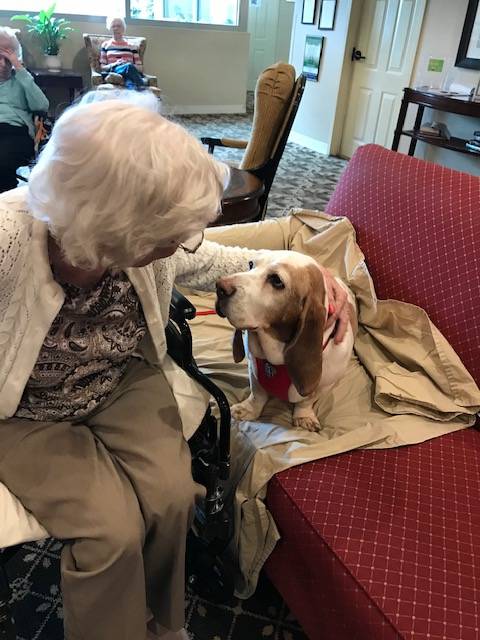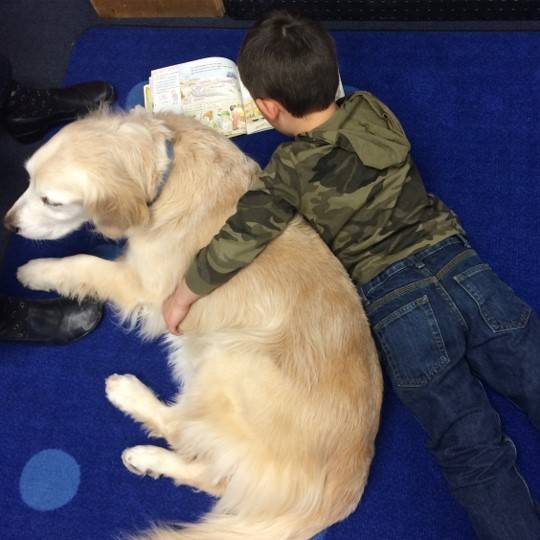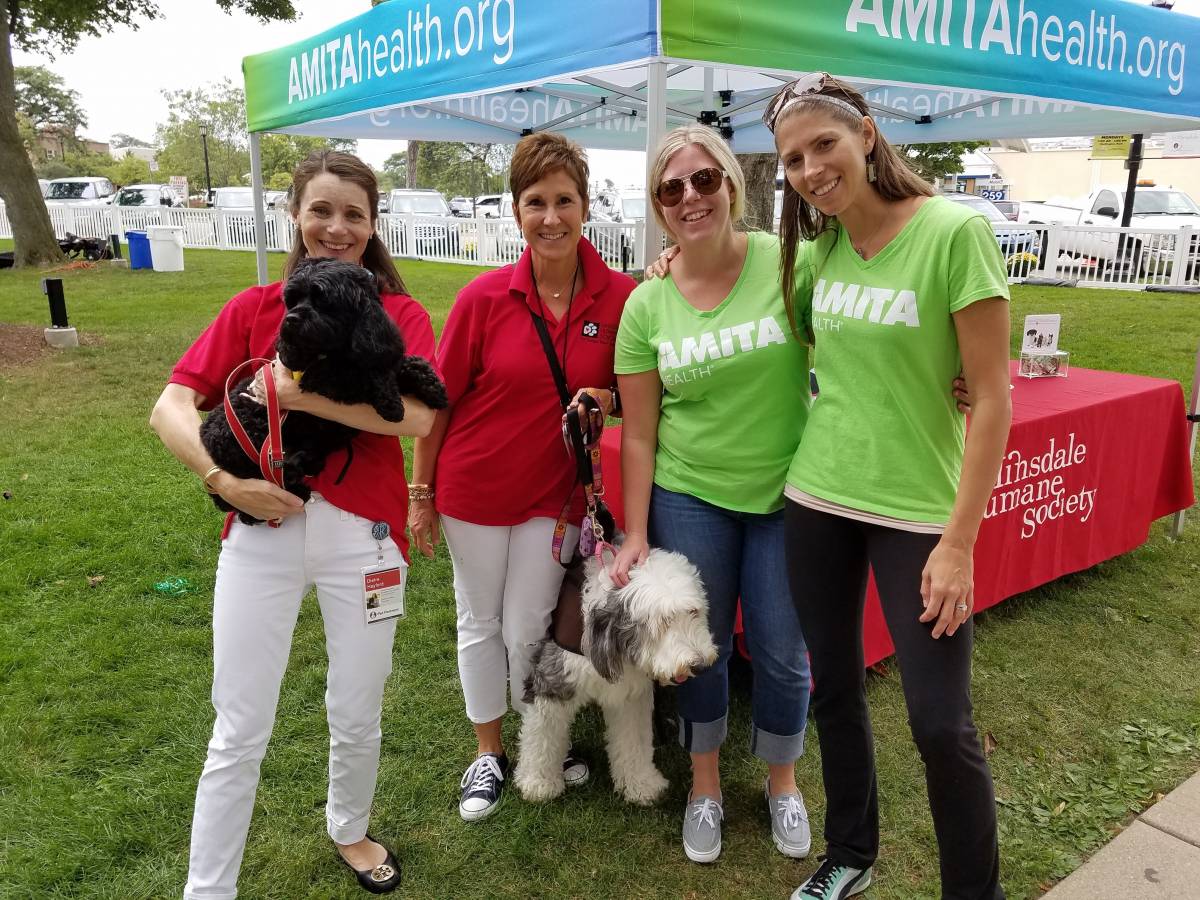Therapaws Pet Therapy
In 1982, Hinsdale Humane Society began caring for humans in addition to pets with the introduction of our pet therapy programs. We currently have three Therapaws Pet Therapy Programs.
 Pet-a-Pet Therapy Program
Pet-a-Pet Therapy Program
Pet-a-Pet is our oldest and largest pet therapy program. Founded in 1982, it sends owner/pet teams to Chicago western suburban nursing home, memory care, adult day care and retirement communities. Owners visit with residents, sharing chats and smiles while the pets provide an unending supply of warmth and love. The goal is to reduce loneliness and boredom, while encouraging memories.
Our visits typically last between 30 minutes and an hour, both weekdays and weekends, depending on the facility. At some facilities, teams move from room to room visiting residents individually. Other facilities structure visits as a group activity, where a team visits with multiple residents in a common room. During all visits, teams must be accompanied by a staff member, such as the activities director.
Teams are expected to make one to two visits a month, but some volunteers enjoy going more often. We welcome all pets that pass the requirements, including dogs, cats, rabbits and guinea pigs.
 READ Therapy Program
READ Therapy Program
The READ therapy program was started in 2006. Volunteer teams of trained owners and their Pet Partner-registered dogs or cats read with children to promote literacy in a pressure-free non-judgemental environment. Children feel relaxed, comfortable, and safe with pets.
They visit public libraries in Chicago’s western suburbs and participate in special programs at schools and other educational settings.
During a typical session, the child sits comfortably on a blanket with the team. The child then reads to the pet while the owner asks the child comprehension, vocabulary, and pronunciation questions, framing them from the pet. For example, “Fido is getting pretty excited! Can you tell him what you think will happen next?” Or, “Fido can’t read that word, it is too difficult. Can you sound it out for him?”
READ visits typically last about an hour and are made on weekday evenings and Saturdays. Teams are requested to commit to one visit a month, but some volunteers enjoy going more often.
For any in-house library visits, all human volunteers must follow the Pet Partners Read with Me™ curriculum and complete an assessment review with the Pet Therapy Coordinator to ensure they understand the skills required to engage the child and aid in their reading. All pets must have current Pet Partner registration. The Hinsdale Humane Society regularly offers READ program orientation for you and your Pet Partner registered pet and assistance with the registration process.
During COVID-19, we supported our local libraries reading programs by offering virtual Read to the Pets through Zoom. We continue to offer this option to libraries upon their request.
 CARe Therapy Program
CARe Therapy Program
The CARe (Canine Assisted Rehabilitation) therapy program was initially developed in 2011 to work with therapists at AMITA’s Paulson Pediatric Outpatient facility. A therapist would develop goals for the session and would incorporate the therapy animal into achieving those goals. Goals included work on sensory issues, motor skills, eye contact and speech therapy.
Our partnership with AMITA Health has expanded to include inpatient visits to Hinsdale, La Grange and Bolingbrook hospital campuses.The hospital units we visit include Labor & Delivery, Peds, Post-Surgical, Rehab, and group settings with teen, adult, and older adult behavioral health issues. With some additional training, teams are invited in to work with AMITA’s St. Thomas Hospice, visiting hospice patients and participating in Bereavement Group programs.
Note that the CARe program is limited to dogs only for inpatient visits. By special permission, cats and guinea pigs participate in outpatient therapy and hospice visits.
Only Pet Partner registered teams with hospital approval may participate in the CARe program.
Benefits of Pet Therapy
Animals are a medication without side effects. Pet Therapy can provide benefits in the areas of:
-
Mental Health – Animals provide acceptance without qualification. They offer nurturing, entertainment, socialization, mental stimulation, and for some feelings of spiritual fulfillment. They can increase self-esteem and empathy and open channels of emotionally safe communication.
-
Physical Health – Animals can be used to increase an individual’s fine motor skills, wheelchair skills, and balance. They can also stimulate relaxation, leading to decreased heart rate and blood pressure.
-
Education – Animals don’t judge, creating a non-threatening learning environment. Also, being with an animal can be a great motivator to achieving learning goals.
Contact Us
To become a volunteer, please complete an application:
Pet Therapy Volunteer Application
To become a facility, please complete a facility request form:
